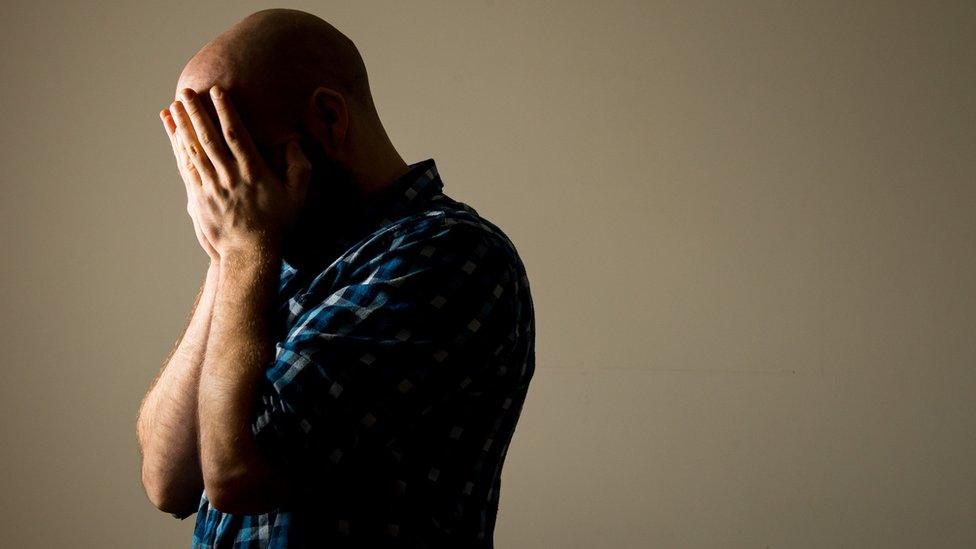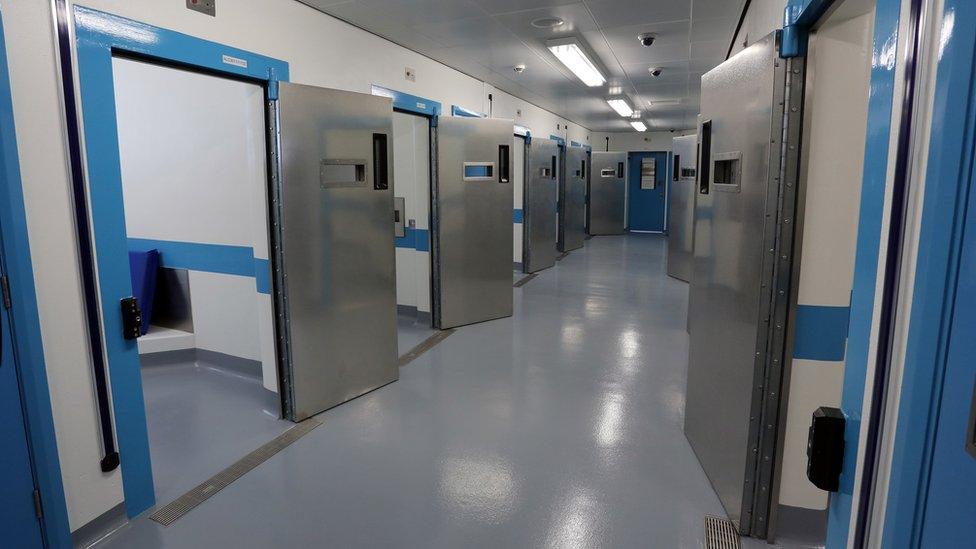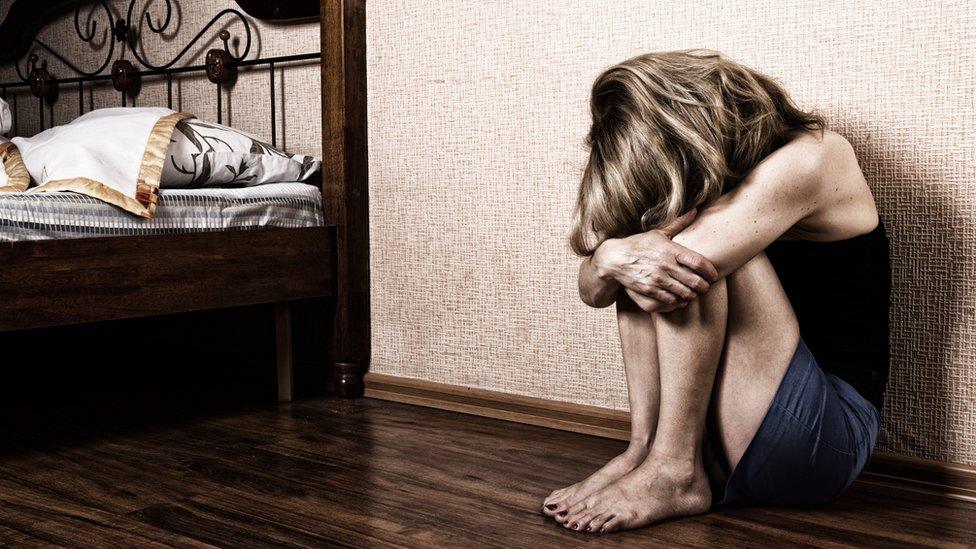'Human rights' concern over compulsory mental ill-health orders
- Published

Compulsory detention and treatment orders are at a record high, according to the commission
The rising use of compulsory treatment for mental ill-health in Scotland is a "human rights concern", the Mental Welfare Commission has warned.
The commission said detention and treatment orders were issued 5,008 times last year - a record high.
Almost half of emergency detentions issued by a doctor did not have the support of a mental health officer.
The Scottish government said patient rights were a key part of its new Mental Health Strategy.
The Mental Welfare Commission for Scotland issues annual figures on the use of laws related to treating people for mental ill-health.
Its latest report shows that there were more episodes of compulsory treatment in 2015-16 than in any year since the Mental Health Act came into effect in 2005.
In a statement, the commission said: "This aspect of the data raises concerns in the commission about patients' human rights."
But the report also shows that there was a declining use of police stations as "places of safety" for people who are mentally unwell, which the commission said was "more positive".
The compulsory treatment laws were used 4,379 times in 2006-07, dropping to a low of 4,069 in 2009-10. Since then there has been a steady upward trend in the number of times they were used.

Police cells are being used much less as a "place of safety" for those with mental health difficulties, the report found
There are three forms of certification for compulsory treatment, with the most marked rise in the use of emergency detention certificates (EDC). These are used in crisis situations to detain someone who needs urgent care or treatment for mental ill-health.
Use of EDCs went up by almost 10% in 2015-16 on the previous year.
These certificates can be issued by any doctor and allow someone to be kept in hospital for up to 72 hours, but the Mental Health Act says a specialist social worker should also give consent where practical.
The commission said this only happened on 56% of occasions.
'Traumatic' experience
Dr Gary Morrison, an executive director at the Mental Welfare Commission said: "People who are very unwell, and need compulsory treatment for their mental ill health, are at their most vulnerable.
"A mental health officer can help explain the process, and can also look at alternative ways of supporting a person without needing compulsory treatment. If there is no mental health officer involved in this critical decision, some people may be detained unnecessarily.
"Others may find the experience of being told they will be detained much more traumatic than they would have done if a mental health officer had been there."
Dr Morrison also said there were "significant variations across the country".
"We expect those areas with low levels of mental health officer involvement to develop clear action plans for improvement," he added.
Minister for Mental Health Maureen Watt said the figures should be seen against a backdrop of rising demand for mental health services, and a greater awareness of mental health issues leading to more people asking for help.
She added: "It should also be remembered that, in certain circumstances, compulsory treatment is essential to provide protection to the patient and others.
"Where compulsory treatment is used, the rights of patients are safeguarded by legislation. Safeguards include a right to independent advocacy, and an efficient Mental Health Tribunal system which grants and reviews orders for compulsory treatment.
"The rise in compulsory treatments may be due to increased diligence from professionals in using the legislation appropriately.
"However, we will continue to work with the Mental Welfare Commission and stakeholders both to ensure these orders are used correctly, and to promote patients' rights more generally.
"Indeed, patient rights will be a key part of our new Mental Health Strategy, which will be published at the end of the year and backed with £150m of funding over five years."

How are compulsory treatment orders issued?

Under the Scotland's Mental Health (Care and Treatment) Act, which came into effect in 2005, there are are three forms of certification for compulsory treatment.
They are the emergency detention certificate (EDC), the short term detention certificate (STDC) and the compulsory treatment order (CTO).
An EDC can be issued by any doctor, though the guidelines state the doctor "must consult a mental health officer and get his/her agreement, unless it is not possible for this consultation to take place".
The patient must be transferred to hospital within 72 hours of the certificate being issued and can be kept in hospital for a further 72 hours.
The guidelines state that the purpose of an EDC is to allow a patient to be assessed for whether they need medicial treatment for a mental disorder.
An STDC can only be granted by a doctor who has experience diagnosing and treating mental disorders.
The patient must be transferred to hospital within 72 hours of the certificate being issued and can be kept in hospital for a further 28 days.
The purpose of the certificate is to allow patients to be assessed and/or treated in hospital.
A CTO is applied for when doctors believe a patient needs longer term care for a mental disorder.
Source: Scottish government guide, external to short-term and emergency powers under mental health act
- Published20 September 2016

- Published6 September 2016

- Published12 February 2016
